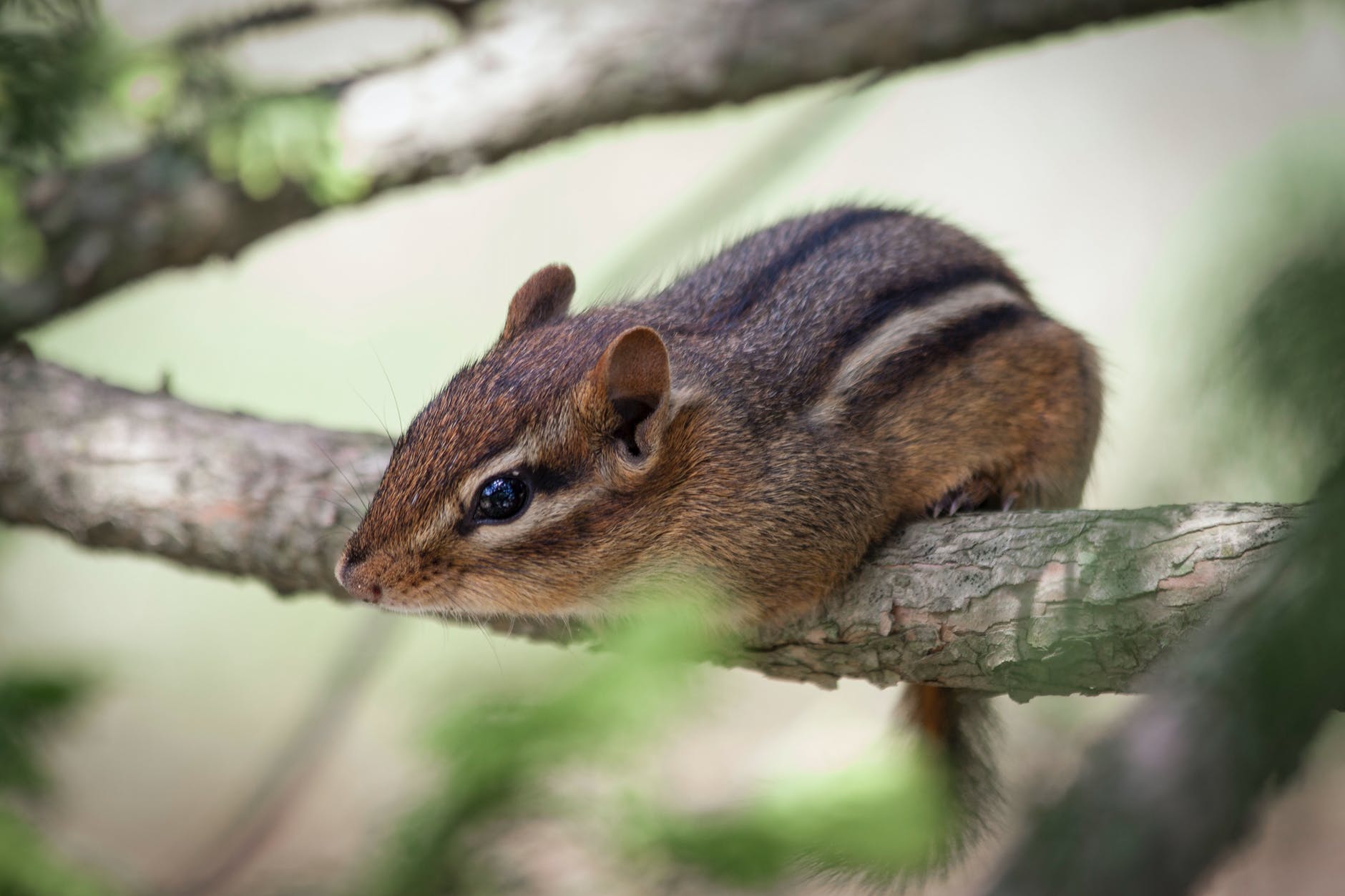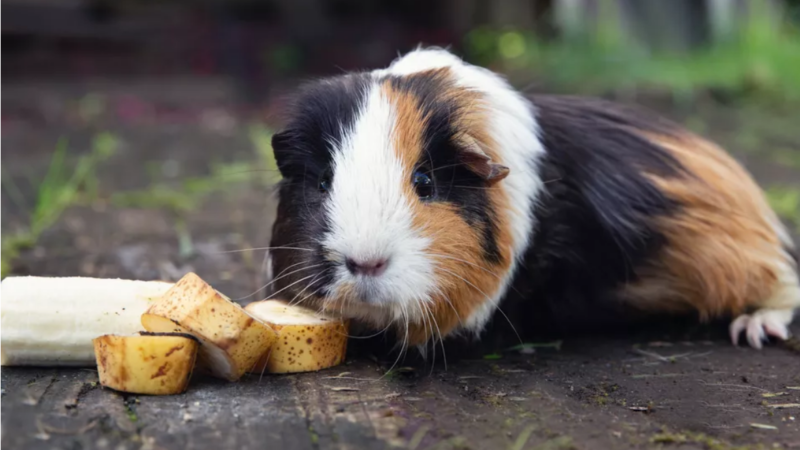How To Get Rid Of Chipmunks In Yard?

Are you sick of the chipmunk colony in your yard? Do you want to know how to get rid of chipmunks? Here, in this post, you will learn about some of the best ways to keep the chipmunks away from your landscape.
These destructive rodents can cause various problems in the yard and even in your house’s foundation by digging holes and burrows. These are cute to look at but can cause big problems if overlooked.
It is important to get rid of chipmunks before they start causing problems.
There are certain humane methods that you can follow to keep them away. Scroll down to learn about these methods.
How To Get Rid of Chipmunks in Your Yard?
These cute-looking chipmunks can be pretty destructive once they intrude on your property. These rodents can devour anything and everything from insects to bulbs, buds, and other plants. Even worse, they can destabilize your house foundation by creating underground burrows.
Fortunately, there are several methods to discourage and get rid of chipmunks from your property.
Below we have mentioned the best ways to get rid of chipmunks using natural and electrical methods:
Build a Fence
One of the best ways to get rid of chipmunks is by using fencing in your yard. You can use a wire mesh or hardware cloth to create a perimeter around every plant; you can even guard the wire around your entire garden or property.
A simple fencing method will not keep the chipmunks away because they can dig holes into the ground and can enter through cracks and spaces from where chipmunks can pass. Make sure that the fence should be at least 8 inches deep so these furry little cannot burrow underneath the ground.
Seal Your Home
Chipmunks are small in size, which makes it easy for them to come into your house as intruders. They can make a really big mess and eat everything and anything that they can find to survive.
You need to sell your house properly if you want to keep them out. Seal any crack or space between the doors, windows using rubber or plastic.
These tiny holes in the sides can invite chipmunks, as they can fit any space which is a minimum of two inches wide. You can use expandable foam, caulk, or concrete to seal the holes and cracks that are visible.
Chipmunks can easily fit into openings of chimneys, pipes, and vents. If you see any chipmunk in your yard, cover any or all pending using mesh or any other breathable material.
Roll up the welcome mat.
Identify any welcoming sign for chipmunks that may attract them to your property. Make sure to keep the garden tidy by cleaning windfall from berry bushes and fruit trees. Grow chipmunk repellent plants like daffodils and garlic in between your flower plants. Dispose of any small vines, rocks, and clippings, these act as a hiding place for chipmunks. If you have bird feeders, keep them as high elevation and away from fences. Avoid keeping low rock boundaries or shrubs near your property; these provide shelter to these naughty little animals.
Use a combination of chipmunk repellent methods.
Four major chipmunk repellent methods can be used in combination. If you want to keep chipmunks away, try out these methods as soon as possible.
Natural repellents:
Get a bag of hair clipping from your barber and sprinkle these around in your garden. The human smell will keep the chipmunks or any pests away. This is a harmless method, and also the nitrogen present in human hair breaks down into a natural fertilizer booster which is good for the plants.
Electronic repellents:
If you don’t want to use natural methods to get rid of chipmunks, try electronic repellents in your yard. Electronic repellent systems use water sprays and ultrasonic pulses to keep the chipmunks away, along with rabbits, raccoons, squirrels, and deers. Good quality and non-toxic electronic repellent is priced at $20 to $30 and will be good enough to cover an area of 900 to 1,200 square feet if given a constant power source.
Liquid repellents:
Another DIY natural chipmunk repellent is mixing ¼ boiled water with1 tbsp. Cayenne. Allow it to cool, and add 2 tbsp olive oil. Store the liquid-repellent in a spray bottle and spray it directly on all the infested areas. You can also buy ready-made sprays from the market. You have to be patient and follow reapplication to let the chipmunks come in direct contact with this stuff.
Dry repellents:
You can also use dry chipmunk repellent methods as they are long-lasting as compared to liquid sprays. Sprinkle granular repellent to create barriers in the major infested areas. You can use products like Shake-Away, which are strong enough to keep these furry chipmunks away but without harming them. Sprinkle the powder around garden paths and flower beds. You can also sprinkle cayenne pepper in the key areas to keep the chipmunks at bay.
Try trapping.
If you feel too lazy to try any of the methods mentioned above, use humane traps to catch these little monsters. These traps will not kill them but will help you settle them far away from your house. You can use 10 to 20 inches long one-or-two door traps and always wear gloves when you set the trap. Human scents are one of the scents that repel chipmunks.
Set the traps in areas that are the prime territory of chipmunk like a garden shed, attic, along the walls and fences, and near your house’s foundation. Sunflower seeds, peanut butter, and peanuts work as excellent bait, which can be placed directly on the trigger plate.
Read More: Zoonotic Diseases That Transfer From Pets To Humans
What Damage Can Chipmunks Do to My Property?
Fortunately, these little furry monsters are not capable of doing any significant damage to your property or yard. However, there are certain side effects of having chipmunks in your garden:
- Light structural damage.
Near suburban or rural houses, chipmunks can dig the burrows close to stairs, patio, retention walls, and even the foundation. This can damage or weaken the areas in the long term.
- Chewed-up gardens
Chipmunks can devour and gnaw on any plant, fruit, and vegetables. They can also dig up holes and flower bulbs, causing a nuisance in the garden. If you have kept bird food, seeds outdoors, make sure to keep them inside the act as a tempting snack for these animals.
FAQs
Here are some of the frequently asked questions about chipmunks that can help you prevent them from raiding your properties:
What do they eat?
Chipmunks eat most of the foods that grow in your garden. They can gnaw on almost anything, including various fruits, shrubs, seeds, and nuts. They are omnivorous, and their diet also includes small reptiles, insects and eggs of birds, and even young birds.
Why do they live near my home?
Certain features of land and geography attract rodents. Chipmunks dig holes and burrows in various locations like lawns, woodlands, parks, gardens, bushy areas, and woodpiles. If you have similar features in your terrain, you may come across burrows. Chipmunks are skilled climbers and can be seen scurrying on the ground near the burrows.
Which regions or states see the largest populations?
Chipmunks are mostly found in Mexico and Canada and eastern, western parts of the USA. They are always in search of a habitat where they can hide. Chipmunks often dig burrows in rural and wooded burrows as well as in man-made and developed settings.
They mostly create shallow burrows during the daytime while making them deeper and spacious burrows during winter hibernation and also food storage.
Final Words:
No doubt chipmunks are one of the cutest pests around us; however, they can be extremely notorious and can cause damage to your garden and spread diseases as well. There are some of the best ways to get rid of chipmunks in your yard and resettle them far away from your landscape. Don’t forget to leave a comment if you find this article useful.






